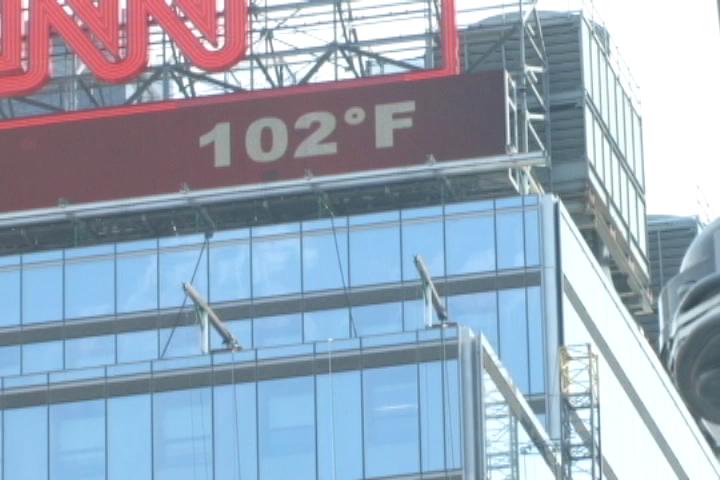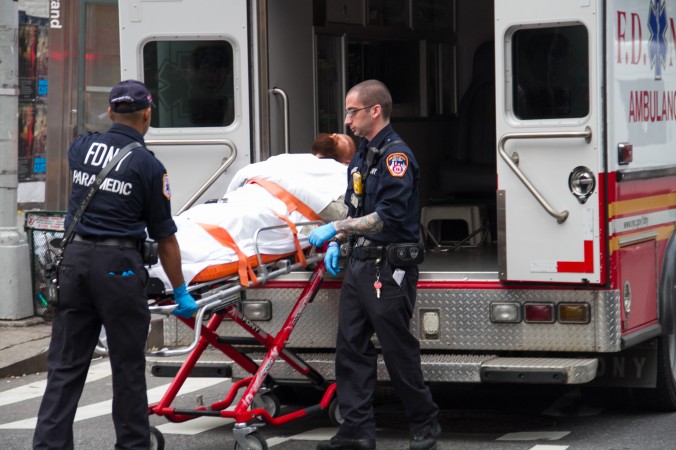New York City is in the grips of a deadly heat wave. The excessive heat, hitting 100 degrees Fahrenheit with heavy humidity, makes it feel like 105.
Scientists Sound Alarm
 Scientists say rising temperatures could make the city even deadlier over the next few decades, a trend that should alarm the world. Average temperatures have climbed more than 3.5 degrees over the last century. While that may not seem like a lot, it could be the difference between life and death. By 2020 heat related deaths in New York may jump by 20 percent.
Scientists say rising temperatures could make the city even deadlier over the next few decades, a trend that should alarm the world. Average temperatures have climbed more than 3.5 degrees over the last century. While that may not seem like a lot, it could be the difference between life and death. By 2020 heat related deaths in New York may jump by 20 percent.
Death Rate Will Rise
“As temperatures rise we see an increase in deaths,” said climate scientist Radley Horton at Columbia University’s Earth Institute. “Our study suggests that under the worst case scenario if we continue see a major increase in greenhouse gases due to rapid development, we could see close to a doubling of the number of people dying during heat waves in New York City by the 2080s.
“We know right now heat waves are a leading killer in the U.S. and our research suggests that a small shift in average temperatures as we burn more fossil fuels could double the frequency of death here in the city.”
Bad News for NYC
Scientists looked at 16 different computer models of climate change. All of them showed bad news for the City. The worst case scenario predicted excessive heat could cause a 90 percent jump in deaths 70 years from now.
Temperatures have topped 100 degrees over the past three years in New York City. Projections vary, but scientists expect average increases of 3 to 4 degrees Fahrenheit by the 2050s, and up to 7 degrees by the 2080s.
Global Trend
“It is a trend the world needs to heed,” said Patrick Kinney, Professor of Environmental Health Sciences at Columbia University. “We studied New York because we had good data for New York, but in Moscow there was a heat wave in 2010 that killed many thousands of people, and in Europe in 2003 there was a very big heat wave that killed as many as 70,000 people. So it’s not just New York or even just a U.S. phenomenon. It’s really a global phenomenon.”
NASA says 2012 was the hottest year on record. If temperatures keep rising, scientists say cities must find ways to help people cope, something New York is already doing.
Ways to Cope
“We are locked into some additional warming but there are other things we can do to reduce the effects of that warming,” said Horton. “So at the city scale for example, we need to continue to plant more trees to increase the amount of shade.”
“We need to develop more white roofs so that we can reflect some of that sunlight. Those are local steps that we can take to reduce the amount of warming. We can also see more of this kind of cooling centers being developed, air-conditioning for some of the most vulnerable members of the population.”
Focusing on strategies like that may help save lives.


